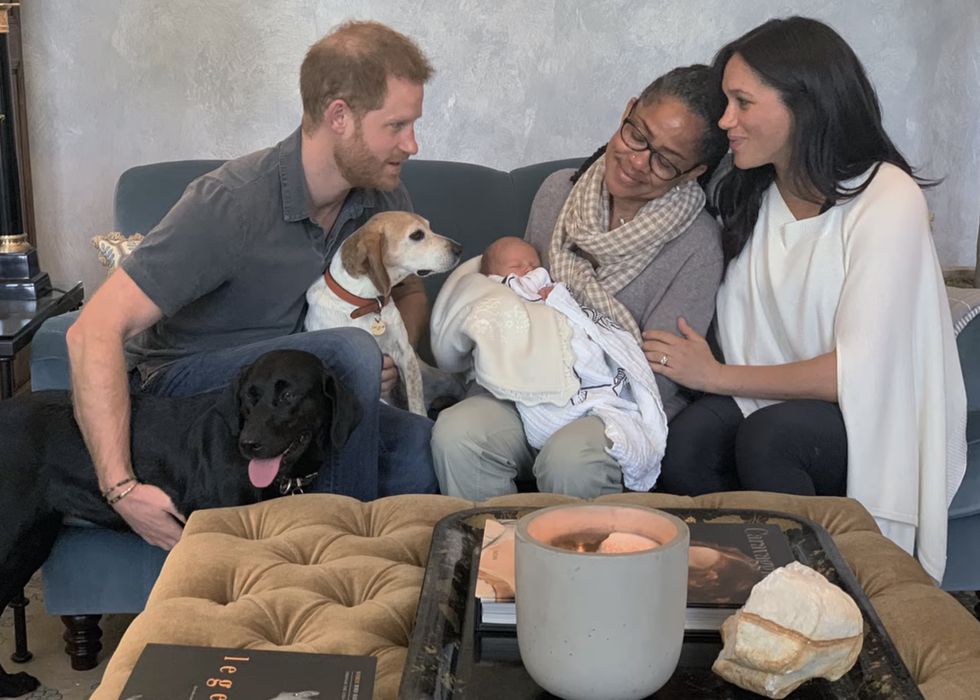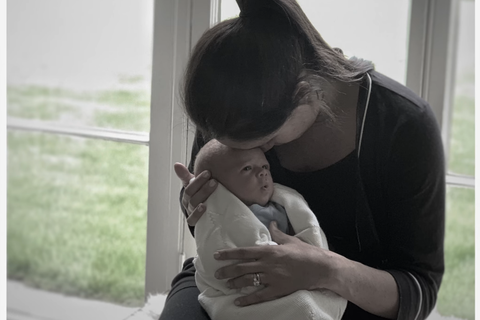Prince Harry and Meghan Markle Discuss ‘Abuse’ and Racism Following Archie’s Birth
Even casual observers of the royal family’s so-called “Megxit” drama are likely to recognize the clip: During her 2019 African tour with Prince Harry, Meghan Markle stands before the interviewer tasked with their royal documentary, and he asks what the last year’s “been like” for her. She stammers as he clarifies, “I don’t know—what the impact on your physical and mental health, of all the pressure you clearly feel under.” Meghan takes a deep breath, smiles, and says the words that quickly went viral: “Thank you for asking, because not many people have asked if I’m okay.”
“And the answer is, would it be fair to say, not really okay? As in it’s really been a struggle?” the interviewer asks.
“Yes,” Meghan replies.
The clip spread around the world, prompting the trending hashtag #WeLoveYouMeghan, but also triggering a cache of headlines expressing both concern and disdain for the new duchess. And in the new Netflix docuseries Harry & Meghan, the couple discuss why this disdain proved such a pivotal moment in their relationship with the royal family.
“The fallout was bonkers,” Harry says, nodding to headlines that read “Self-pity of spoilt princess not all right” or “Don’t Cry for Meghan.” “Every single front page in the U.K. was, like, very different to what the general public’s reaction was. When you would expect support from the people closest, we got the opposite.”
This supposed “selfishness” on behalf of the new mother had already plagued Meghan and Harry since their first child, Archie Mountbatten Windsor, was born in May 2019, and critics lambasted the couple for breaking royal tradition during their newborn’s photo call. They waited two days after the birth to pose for pictures on royal property, as opposed to arranging a photo call on the steps of St. Mary’s hospital hours after the baby’s arrival, as numerous royals before them had done.
In the docuseries, Meghan explains why this change in tradition took place, citing that her doctor was at Portland Hospital, where a photo call would have been “impossible” due to the set-up of the emergency room entrance. “We said, ‘Okay, what’s the hybrid? Can we give [the photographers] more time at the castle?’” Meghan recalls. “And everything in turn was like, ‘Yes. Yes, great. Oh, yes.’ At no point did someone go, ‘Absolutely not.’”
Instead, media labeled the change, and the longer-than-usual wait for baby photos, as a “slap in the face.” “The amount of abuse that we got…for not wanting to serve our child up on a silver platter, was incredible,” Harry says in Harry & Meghan.
Nor did it help that, following Archie’s birth, the public’s racism became all too apparent. “Archie’s just been born,” Harry remembers. “Media, social media starts to take on a life of its own. Someone in the media posting a photograph of a couple with a chimp, and at the top it says, ‘Royal baby leaves hospital.’ So that was one of the first things that I saw.”
Later, Meghan describes the combination of these events—the birth, the fallout over the photos, the racism, the documentary interview going viral—as a “huge turning point.” “It was when we started having harder conversations about what needs to happen for us to be able to continue to make this work,” she says.
Harry adds, as if to make the parallels absolutely crystalline: “No one in the family speaks that openly. No one had done but for one person: my mum.”

Associate Editor
Lauren Puckett-Pope is an associate editor at ELLE, where she covers film, TV, books and fashion.


